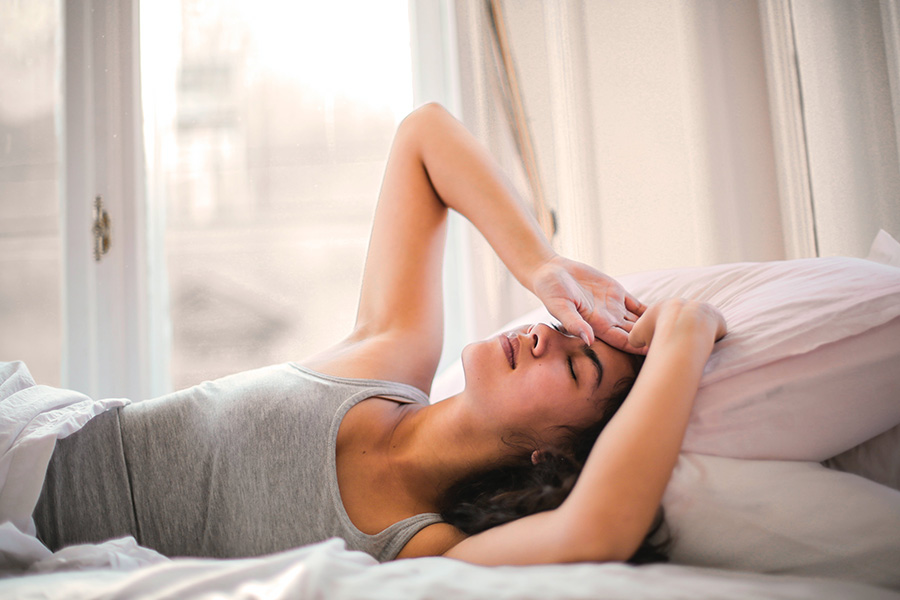As a Sleep Clinic, our practice often encounters a crucial yet often overlooked aspect of sleep health— the intricate dance between hormones and our sleep-wake cycle. Hormones play a pivotal role in regulating our body’s internal clock, influencing the quality and duration of our sleep. In this article, we’ll explore how hormones impact sleep and delve into natural remedies to foster a more harmonious relationship between hormones and a restful night’s sleep.
The Hormonal Symphony of Sleep
Our bodies operate on a finely tuned system of hormonal cues, orchestrating various physiological processes, including sleep. Two key players in this hormonal symphony are melatonin and cortisol.
Melatonin: The Sleep Inducer
Melatonin, often referred to as the “sleep hormone,” is produced by the pineal gland in response to darkness. It regulates our sleep-wake cycle by promoting drowsiness and preparing the body for sleep. Exposure to natural light during the day and darkness at night helps maintain a healthy melatonin rhythm. Disruptions to this rhythm, such as exposure to artificial light at night, can suppress melatonin production, making it challenging to fall asleep.
Cortisol: The Wakefulness Hormone
Known as the “stress hormone,” cortisol has a complex relationship with sleep. In the morning, cortisol levels naturally peak, helping us wake up and feel alert. Throughout the day, cortisol gradually decreases, reaching its lowest levels in the evening to facilitate sleep. However, chronic stress or irregular sleep patterns can lead to dysregulation, causing cortisol levels to remain elevated when they should be decreasing, leading to difficulty falling asleep.
Hormonal Imbalances and Sleep Disturbances
Several factors can disrupt the delicate balance of hormones, contributing to sleep disturbances:
Stress and Cortisol Dysregulation
Chronic stress is a common culprit behind cortisol dysregulation, leading to heightened levels of this hormone when it should be decreasing. This can result in difficulty falling asleep and staying asleep. Implementing stress management techniques, such as mindfulness, meditation, and deep breathing exercises, can help regulate cortisol levels and promote a more tranquil sleep environment.
Blue Light Exposure and Melatonin Suppression
The modern era’s pervasive use of electronic devices exposes us to artificial light, particularly blue light, which can suppress melatonin production. This disruption can confuse our internal clock, making it challenging to wind down at night. To mitigate this, establish a tech-free zone at least an hour before bedtime, and consider using blue light filters on devices. Additionally, invest in blackout curtains to create a dark sleep environment.
Hormonal Changes in Women
Women may experience hormonal fluctuations due to menstrual cycles, pregnancy, and menopause, all of which can impact sleep. For menstrual-related sleep disturbances, maintaining a consistent sleep schedule and practicing relaxation techniques can be beneficial. During pregnancy, hormonal changes can contribute to discomfort and disrupted sleep; supportive pillows and relaxation exercises may provide relief. Menopausal women may find relief through hormone therapy or natural remedies such as black cohosh or valerian root, but it’s essential to consult with a healthcare professional before starting any new regimen.
Natural Remedies to Support Hormonal Harmony and Sleep
Regulate Sleep-Wake Cycles with Light Exposure
Harness the power of natural light to regulate your circadian rhythm. Spend time outdoors during daylight hours, especially in the morning. In the evening, dim the lights and avoid exposure to bright screens. This helps maintain the proper balance of melatonin and cortisol, signaling to your body when it’s time to wake up and wind down.
Mindfulness and Relaxation Practices
Incorporate mindfulness and relaxation practices into your daily routine to manage stress and promote hormonal balance. Meditation, deep breathing exercises, and progressive muscle relaxation can help reduce cortisol levels, making it easier to transition into a more relaxed state before bedtime.
Herbal Supplements
Certain herbs have been used for centuries to promote relaxation and improve sleep. Valerian root, passionflower, and chamomile are popular choices known for their calming effects. However, it’s essential to consult with a healthcare professional before incorporating herbal supplements into your routine, especially if you’re taking other medications.
Maintain a Consistent Sleep Schedule
Consistency is key when it comes to optimizing hormonal balance and promoting healthy sleep. Go to bed and wake up at the same time every day, even on weekends. This helps regulate your body’s internal clock and reinforces the natural ebb and flow of melatonin and cortisol.
Create a Sleep-Inducing Environment
Transform your bedroom into a sanctuary dedicated to sleep. Keep the room cool, dark, and quiet, and invest in a comfortable mattress and pillows. Consider using blackout curtains to block out external light and minimize disruptions. The goal is to create an environment that supports the natural hormonal shifts necessary for restorative sleep.
Limit Stimulants and Alcohol
Reduce or eliminate the consumption of stimulants such as caffeine in the hours leading up to bedtime. Additionally, while alcohol may initially induce drowsiness, it can disrupt the later stages of sleep. Moderation is key, and it’s advisable to avoid alcohol close to bedtime for optimal sleep quality.
Understanding the intricate interplay between hormones and sleep is essential for anyone seeking to improve their sleep quality naturally. By adopting lifestyle changes and incorporating these natural remedies, you can create a supportive environment that aligns with your body’s hormonal rhythms, promoting restful and rejuvenating nights. Remember, achieving better sleep often involves a holistic approach, and consulting with a healthcare professional can provide personalized guidance tailored to your unique needs. Embrace the power of hormonal harmony, and let each night become a symphony of restful sleep.
If you think hormones could be affecting your sleep, please call our sleep center, Sweet Sleep Studio at (913) 309-5963 to learn more about we can help you achieve a good nights rest.

